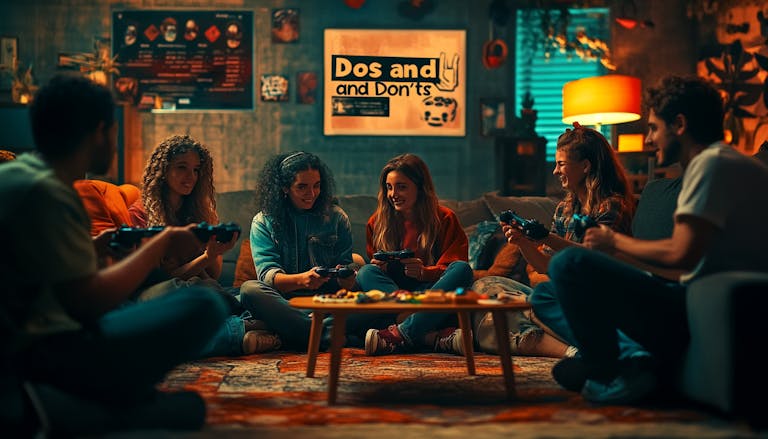If you’ve chosen to acquire a gaming console for your residence, be it for a shared experience among the entire family or just for you and a friend, you must prioritize the equitable distribution of hardware resources from the outset. Here are some salient points to consider.
Different people like different things.
The RPGs I adore don’t necessarily align with anyone else’s gaming preferences. My eldest son enjoys storytelling games, while my youngest is into sandbox games. My wife prefers collect-a-trons. As you can see, these gaming preferences are quite different from each other, and this influences the selection of games I purchase for our console.
You probably won’t notice a significant difference. I no longer purchase as many games for myself; when I do, I ensure they cater to the interests of others in the house and don’t stray too far from their preferred genres. Co-op games are a great way to keep arguments to a minimum, especially when you’ve got kids. And don’t forget—you’re also going to need an extra controller or two.
Accessibility for all is a must.
Imagine that you and a friend have fallen in love with a gaming console. When you and your friend are having the inevitable conversation about where to place the console, and your friend suggests their room, let’s assume, for the sake of this example, that your friend is suggesting this in a good-natured, totally non-creepy manner.
If the console is in a common area like the apartment living room, it is much better for both of you and your other friends than if it is in a bedroom, where access depends on the friend’s privacy and whether they are awake. If it must be in a common area like the living room, one option is to pair it with a second TV in that room. Another is to put it in a less visible place, thus preventing one co-owner from using it when the other is not on board with the arrangement.
You can disseminate both digital and tangible games.
There are two kinds of video games: physical and digital. You can share a physical game anytime you want. This is especially useful if you want to someday sell a game to buy a new one.Despite the limited freedom of digital games, you can still share them with other profiles on your console.
On the Xbox Series X|S, you can use Game Share to share titles. On the PS5, you have to enable Share Play. Sharing digital games on the Nintendo Switch, where there are many more physical games than digital ones, happens automatically across profiles. If you’re playing online, you can also share your Nintendo Switch Online Family membership.
Make use of the security elements that your account offers.
Despite the optimal use of account security features when sharing a console with friends, I strongly recommend using them even when you’re alone with your family. Whether you trust your friend implicitly or not, I strongly advise against giving them access to your account when sharing a console. All the current-gen consoles offer some sort of account protection, and it’s best to make use of that. I nearly purchased a game that I did not desire on multiple occasions due to my lack of attention, and this occurred last week (or was it this one?).
If you’ve been sharing a console with a friend for some time and they decide to leave, they will be able to transfer their profile and all the activities they performed on your account. If you are that friend in such a scenario, remember that sharing an account is somewhat inconvenient and should be avoided. Sharing a profile is the same thing as sharing an email address.

